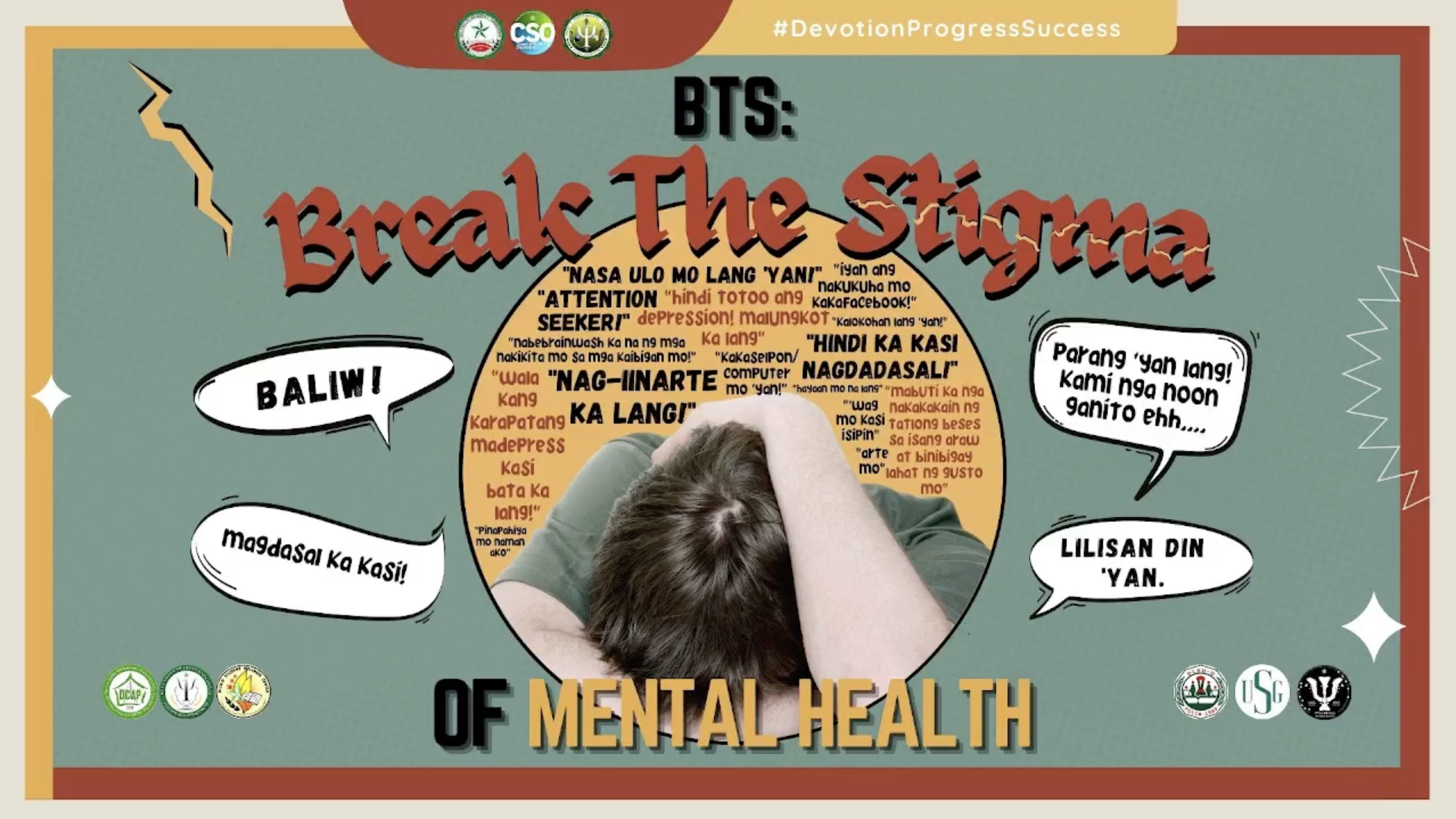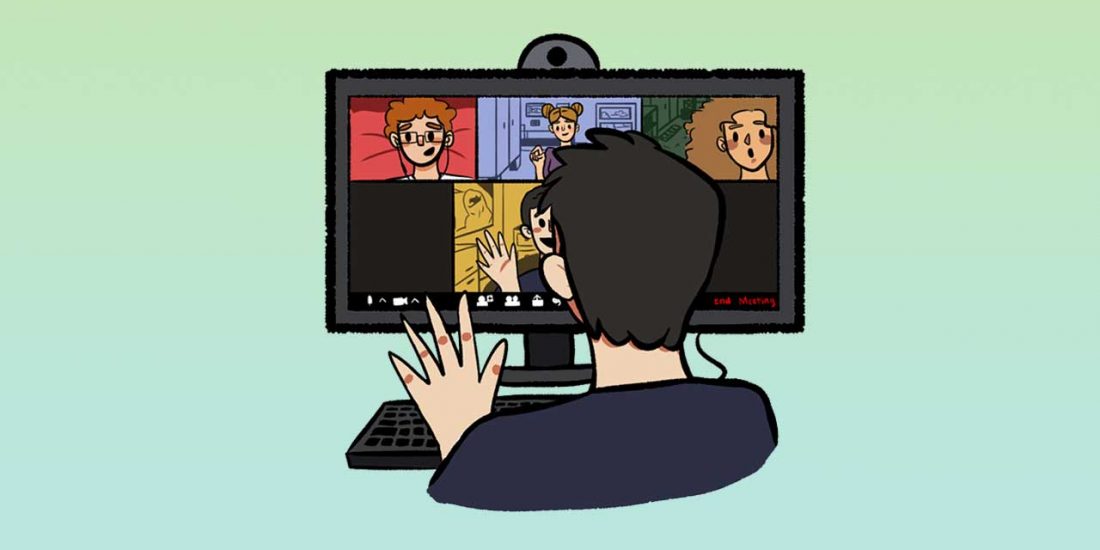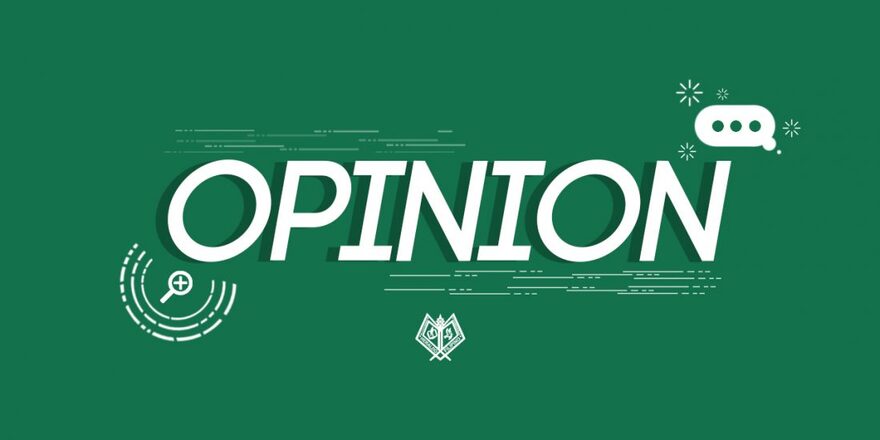Out of the shadows: Mental health advocates break existing stigmas in DPS’ webinar
Shedding light on mental health issues faced by parents and youth amid the pandemic, the DLSU-D Psychological Society (DPS) spearheaded BTS: Break the Stigma of Mental Health webinar in observance of the mental health awareness month on October 23 via Facebook Live.
Featuring a mental health professional and an educator as guest speakers, the event was held in partnership with the DLSU-D Applied Psychology, DLSU-D Psychology Department, DLSU-D Student Wellness Center (SWC), Parents Organization of La Salle Cavite (POLCA), and the University Student Government (USG).
The pandemic’s toll on mental health
The number of individuals who experience mental health struggles witnessed an increase during the pandemic, with the Department of Health (DOH) recording at least 3.6 million Filipinos suffering from a variety of mental health issues.
To understand the pandemic’s toll in one’s mental health, Paul Anne Quibael – Forman, a Mental Health Support Officer for the Kanlungan Filipino Consortium in the United Kingdom, enumerated the factors that greatly affect the mental health of Filipinos today. These include concerns on job security, adjustment to new learning set-up, and social isolation amid the lockdown.
With the abrupt adjustment in the daily lives of individuals during the pandemic, Industrial and Clinical Psychology expert Joy – Castro Miñano explained how it created a domino effect that made people feel that there is something wrong within themselves.
“Kung napapansin niyo, especially sa mga students, kahit ilang beses niyo nang inaaral hindi pa rin siya pumapasok or dati naman kayang kaya niyong i-memorize or aralin, tapos all of a sudden biglang hirap na kayong mag-aral. So that is also a warning sign,” Forman specified in support of Miñano’s insights.
The grudging cost of the crisis then pushed some students to dropout in the previous and current academic year, while some adults turned to other measures such as drinking, smoking, and overuse of substances as a coping mechanism to the problems they are facing.
Mental struggle hits anyone
In line with the unseen struggles and misconceptions about mental health, Forman emphasized that mental struggles and illnesses are matters that should neither be taken lightly nor be treated as a joke.
“Hindi sila mga baliw, hindi sila may mga sayad, wala silang tililing. At kahit ilang beses silang magdasal nang magdasal, kung mayroon talaga silang nararamdaman, at mayroon silang concern na hindi na a-address, they would still feel the same way,” she expressed.
Shifting the focus from the perspective of the youth, Miñano underscored that even parents and other adults can also face mental health issues— as they are not usually as strong as people expect them to be. In the same way students are struggling to cope, adults are also trying their best to make ends meet, and this continuous effort takes its toll.
“We need to be patient with our parents. Kung ikaw ay parent, you need to be patient with your child, and ikaw naman na anak, you also need to be patient to your mom or to your dad na may pinagdadaanan din siya. Kung mahirap yung pinagdadaanan mo, doble ‘yon sa kanya. So you have to be patient,” Miñano noted.
Kindness and empathy goes a long way
Being open with our mental health is a process, but also a good starting point for those who are only beginning to acknowledge their struggles. To give us a few pointers, Miñano listed a couple of ways we can reach out to other people even when they are not yet ready to express themselves.
“Let them know that your friends, your family, your child, your children know that they are not alone. And tell them they have your unconditional love and support. Be always available to listen. Really listen without judgement, of course,” she stated.
Forman pointed out that listening to a person without exercising any prejudice could already create a significant impact on someone’s life. Given how coping mechanisms vary per individual, both speakers then stressed that it might take a longer time for some people to open up and express their feelings, which we should learn to respect and understand.
“Let’s try to be patient with them. Napagdaanan natin ‘yong pinagdaanan nila, pero kung ano ‘yong pinagdadaanan nila is different. It’s sometimes overwhelming, and they are learning how they will handle it,” Forman emphasized.
***
Mental health, like every other aspect of our wellbeing, should be treated with the same care and sensitivity, if not more. Faced with uncertainties, job losses, deaths and day-to-day stresses, mental health struggles are being treated as a footnote until it begins making the headlines once again— which should not be the case. Breaking the stigma does not only mean venturing towards a deeper understanding in knowing how to help one another amid the ongoing crisis, but also by acting on it. That, and the acknowledgement that we are sailing different boats in the same, stormy ocean, where no two struggles can be exactly the same.
Slider courtesy of DLSU-D Psychological Society (DPS) as seen on DPS Facebook Page.





